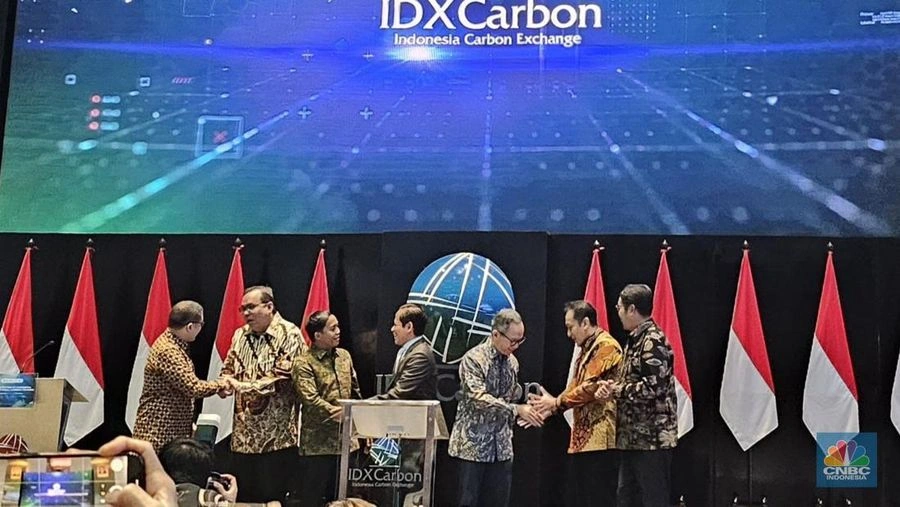
Jakarta, October 21, 2025 — Indonesia’s commitment to a low-carbon economy was once again demonstrated through the implementation of Training 2: Exploring Technologies for Energy Transition, part of the Sustainable Energy Transition in Indonesia (SETI) program. Held at the Sari Pacific Hotel in Jakarta, the event served as a platform for industry stakeholders to strengthen their understanding and capacity in implementing energy efficiency and adopting low-emission technologies.
The training was a collaboration between the Ministry of Energy and Mineral Resources (ESDM), World Resources Institute (WRI), and the Deutsche Gesellschaft für Internationale Zusammenarbeit (GIZ) GmbH, with support from the German Federal Government and the International Climate Initiative (IKI). As a capacity-building partner, Greenwise Consulting played an active role in supporting the coordination and facilitation of the sessions.
Government Commitment: Energy Efficiency as a National Priority
In his opening remarks, a representative from the Ministry of Energy and Mineral Resources expressed appreciation for the program as a tangible step toward achieving Indonesia’s national energy transition goals. “The industrial sector plays a vital role in reducing emissions. Through programs like SETI, we aim to strengthen the implementation of renewable energy and energy efficiency measures to achieve our 2060 net-zero emission target,” Praptono Adhi Sulistomo stated. He also emphasized the importance of synergy between the government and the private sector in addressing global challenges. Regulations such as Government Regulation No. 33 of 2023 on Energy Efficiency and its derivative policies now serve as the foundation for accelerating Indonesia’s shift toward a cleaner and more sustainable energy system.
Germany’s Commitment Through GIZ: Collaboration for a Sustainable Transition
Representing GIZ, Dr. rer. nat. Johannes Anhorn, Project Coordinator of SETI Indonesia, underscored the importance of cross-sector collaboration in accelerating the shift toward a green industry. “The energy transition is not only about technology, it is about collaboration and shared learning. Indonesia has tremendous potential, and through partnerships like SETI, we aim to strengthen industrial capacity in line with the country’s net-zero ambitions,” said Johannes.
Training Highlights: From Strategy to Green Technology
The training series covered a wide range of essential topics — from Energy Transition Management Integration to Exploration of Supporting Technologies for Energy Transition. Participants learned about the implementation of energy management systems (PP 33/2023), energy audits, and ISO 50001 standards for industrial energy management.
Led by Hesli Oktavia and Wiratmojo Sakti Nugroho, participants explored how energy efficiency technologies, electrification, and nature-based solutions can significantly reduce greenhouse gas emissions.
Meanwhile, Ir. Aqsha, ST, MSc, EIT, PhD, presented case studies on low-carbon technologies applied in the industrial sector, such as biomass boilers, heat pump systems, and digital energy management systems (EMS).
Participants’ Voices: From Inspiration to Action
The enthusiasm of participants was evident throughout the interactive sessions.
A representative from PT Smart Tbk shared their best practices in utilizing biomass and palm shell waste as alternative fuel since 2023. “We conduct monthly emissions reporting to top management to ensure that our 2030 targets are on track. Accurate data helps make our energy transition strategy more measurable,” said Fariz from PT Smart Tbk.
From the manufacturing sector, PT Denso Indonesia shared its experience in implementing energy efficiency initiatives since 2015 through four main pillars: energy conservation, consumption reduction, renewable energy adoption, and carbon offsetting. “Energy transition doesn’t always require new technologies — consistency in implementing efficiency at every level is what truly matters,” said Sigit from PT Denso Indonesia.
Panel Discussion: Collaborative Solutions for a Green Industry
One of the key highlights of the event was the panel discussion that brought together various stakeholders from the energy and technology sectors. Moderated by Caesar Bayu Kusuma (Energy Efficiency Senior Specialist, WRI Indonesia), the session featured Partomuan Sagala (BECIS Indonesia), Raymond Simanjorang (Hexamitra Daya Prima), and Aries Purwanto (Cakrawana Adi Perkasa).
Panelists discussed the opportunities and challenges of implementing energy efficiency technologies in industrial operations, emphasizing the need for enabling policies, innovation in heating and cooling systems, and green investment mechanisms to accelerate the adoption of clean energy solutions.
Greenwise’s Role: Supporting Industries in Their Energy Transition
As a capacity-building partner, Greenwise Consulting played a vital role in the design and facilitation of the training sessions to ensure alignment with practical industry needs. Through a collaborative and data-driven approach, Greenwise helps participants translate knowledge into concrete actions for improving energy efficiency and integrating low-carbon technologies within their operations.
Toward a Low-Carbon Industry: Real Action, Tangible Impact
With a spirit of collaboration and shared learning, the training marked another important step toward transforming Indonesia’s industrial sector into a more efficient and sustainable one.Interested in joining the next energy transition training? Contact Greenwise Consulting at info@greenwise.co.id and visit www.greenwise.co.id


